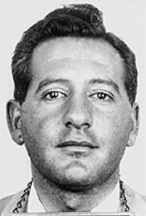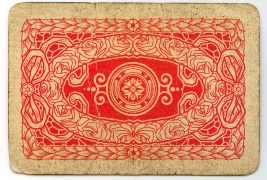|
Listen to this blog post here
Getting your Trinity Audio player ready...
|

Elliot Paul Price
1970-1973
When federal agents arrested Elliot Paul Price, 51, during a massive multi-city raid in 1970 and charged him with illegally transmitting race wire information across state lines via telephone, two dominos fell:
• He lost his job as a casino host at Caesars Palace in Las Vegas.
• The Clark County Sheriff’s Office pulled his work card, which is required for casino employment.
In April 1971, however, the sheriff’s department issued him a temporary permit to work in a similar position at Circus Circus. Within the week, though, the Nevada Gaming Commission (NGC) voted to pull it due to his being under federal indictment and allegedly having an unsavory background. On the NGC’s orders, the sheriff’s office revoked his card, leaving Price again unemployed.
Price Won’t Take No
Unable to obtain a casino job, he filed a lawsuit, but it went nowhere because, according to the judge, he hadn’t pursued all possible avenues for re-obtaining his employment permit.
Price asked the NGC and the Nevada Gaming Control Board (NGCB) to reinstate it, but they didn’t. This was because, in a hearing on the issue, he refused to answer questions about his suspected association with underworld individuals. Price hailed from Boston and gambling regulators believed he was entrenched in the Mafia there.
Lawsuit, Take Two
At the start of 1972, with Oscar Goodman as his attorney, Price sued Nevada Governor Mike O’Callaghan and the NGC, claiming the latter had rescinded his work card arbitrarily. The suit purported the agency’s decision hadn’t been based on established guidelines but, rather, on unrelated “charts of the Mafia, ancient newspaper articles, dime store novels, and secret and confidential information” (Nevada State Journal, June 13, 1972). It also asserted the NGCB hearings had violated his freedom of association right and forced him to be a witness against himself.
Goodman requested the withdrawal of Price’s work card be deemed unconstitutional and a temporary restraining order (TRO) be placed against the gambling regulating agencies, preventing them from interfering with his obtaining a new one.
The state, on the other hand, argued that were the court to afford the TRO until the issue got resolved legally, it would be substituting its judgment for that of Nevada in a state administrative matter. Also, were Price to prevail, it “could well emasculate the total regulatory concept of gaming” (Reno Evening Gazette, June 13, 1972).
District Court Judge Howard Babcock granted Price the TRO.
Nevada Fights Back
The NGCB responded with a suit of its own to overturn Babcock’s action on the grounds that the local court lacked jurisdiction in the matter. The NGC and NGCB conceded Price could work in a non-casino job at Las Vegas’ Riviera hotel.
District Court Judge Carl Christensen denied the State of Nevada’s motion to dissolve the TRO. This meant Price could return to his casino host post at Circus Circus until the high court weighed in.
Off to Higher Court Land
Next, Goodman took the case to the Nevada Supreme Court, asking it to allow Price to regain his work card, thereby protecting his constitutional right to due process.
Deputy Attorney General David Polley, for the state, argued that upholding Babcock’s ruling would “set a dangerous precedent which would be detrimental to the inhabitants of Nevada and their major industry” (Nevada State Journal, June 13, 1972).
Resolution Three Years Later
In 1973 the Nevada Supreme Court delivered the opinion that, yes, the lower, or district, court had jurisdiction to rule upon the validity of Price’s right to work in gaming.
In other words, Goodman and Price* won the legal fight. Their doing so established that Nevada couldn’t deprive someone of their work card without due process. Subsequently, Clark County instituted processes for suspending or revoking a work identification card and for an appeal by the card holder.
* In 1979, Price would be indicted for multistate race fixing along with other members of Boston’s Winter Hill Gang, James “Whitey” Bulger’s associates, for which he would serve two months. Subsequently, he would disappear, never to be heard from again.






Rachael
Is there a way to contact the author of this article? I have some information on this man. He is a relative.
admin
Rachael,
I’m the author. I’ll send you an e-mail, so you’ll have my contact info. Thank you, Doresa
Colby Price
This is my grandfather. Who has passed. Any information you have is irrelevant at this point.
admin
Thanks, Colby, for your comment.